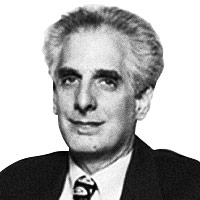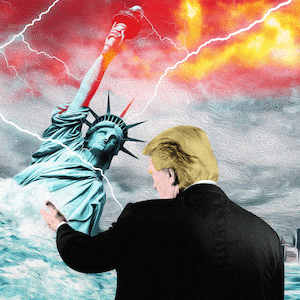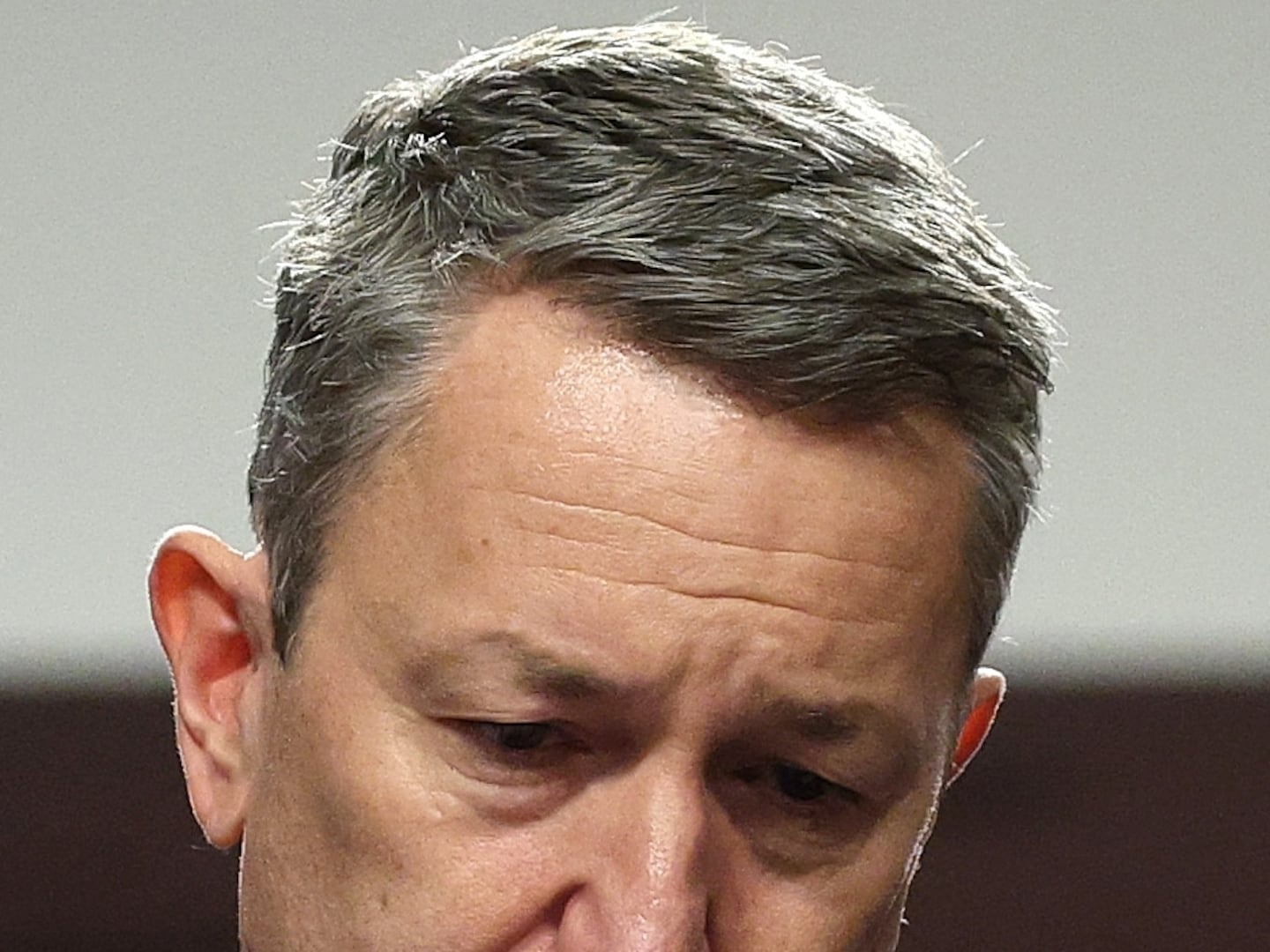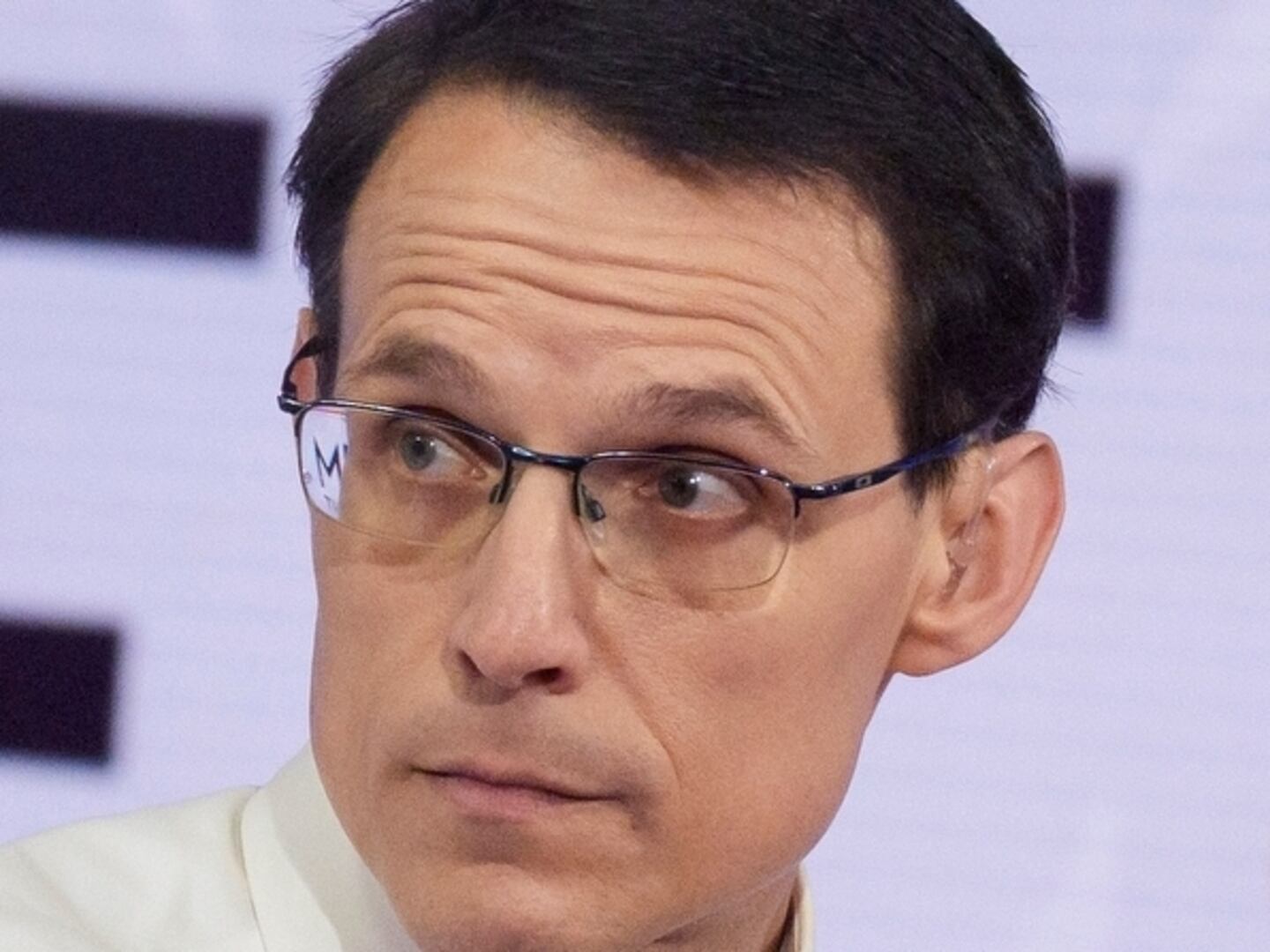As his political support withers away along with his prospects for re-election, Donald Trump is declaring his intention to try governing as a dictator.
Trump, who bashed Obama for relying on executive orders and boasted that he’d get legislative deals done, long ago gave up on getting bills through Congress. Now, relying on advice from the lawyer who told George W. Bush that torture is legal, the president contends that he’s free to govern by issuing plainly illegal executive orders.
That helps explain why Trump—who is denying the United States Postal Service the resources required to deliver many mail-in ballots —bizarrely claimed last week that he has the ability to issue an executive order to outright bar states from accepting mail-in ballots at all. While such a gambit would almost surely fail, Trump’s threat is part-and-parcel of a last ditch power grab by a desperate president.
ADVERTISEMENT
After entering office with GOP control of both houses of Congress, Trump’s first two years were focused on passing a hugely regressive tax cut bill (enacted with almost only GOP support) and an ultimately failed effort to repeal the Affordable Care Act over the uniform objection of Democrats. Since then, and indeed beginning well before the GOP lost control of the House in 2019, Trump’s had virtually no legislative agenda.
Instead, Trump’s relied on increasingly aggressive exercises of executive authority, often challenging the lawmaking and budgetary authority of Congress, most notably through his scheme to build “the wall” he promised on the campaign trail with funds that lawmakers had appropriated for other purposes. The utter vacuum of Trump’s legislative agenda long ago became a D.C. joke, exemplified by the endless, and meaningless, “infrastructure week” announcements from the White House.
But in recent weeks, Trump’s efforts to evade the legal and constitutional limits on his authority have gone beyond just absurdity, and have begun to gravely threaten the government and the nation.
For years now, Trump has avoided placing nominees for some of the government’s most important posts before the Senate for its advice and consent, as the Constitution requires; instead Trump’s relied on necessarily temporary acting commissioners and other senior officers. The Department of Homeland Security, in particular, has had a merry-go-round of acting leaders. On Friday, the General Accounting Office issued a report concluding that the current acting commissioner, Chad Wolf, as well as his predecessor and the current acting deputy, Ken Cuccinelli, were improperly named to their posts, potentially calling into question the legal validity of many months of official actions.
Furthermore, Trump’s efforts to evade constitutional checks and balances threatens to work a disaster this summer, as the nation stands at the abyss of a depression and is in the grip of a public health catastrophe. Trump’s White House proved itself utterly unable to negotiate in normal course with both Republicans and Democrats in Congress for a third tranche of supplemental unemployment insurance payments and other fiscal stimulus, which is not only desperately needed by the nation, but is also critical to Trump’s own re-election prospects.
Enter Berkeley Law School professor John Yoo, who came to prominence during the Bush administration for authoring the notorious Department of Justice Office of Legal Counsel memoranda opining that the CIA could legally torture al Qaeda prisoners. The memos became an ethical blot on the department, and were later withdrawn. Yoo is also the author of a new book contending that Trump is restoring the constitutional scheme contemplated by the Framers.
Recently Yoo authored an article advocating a strikingly Nixonian idea: that presidents have plenary authority to act illegally. Yoo’s claim is grounded on an eccentric, and entirely disingenuous, interpretation of a recent Supreme Court decision rejecting Trump’s effort to nullify the DACA program. Trump lost the case because of the sloppy means by which his administration set out to nullify the Obama era program, a move the court rejected because the administration relied on an insufficiently explicated, and improperly shifted, rationale.
But according to Yoo, who’s reportedly been boasting about meeting Trump in the Oval Office, the court decision stands for the proposition that a president is free to implement patently overreaching executive orders, falling outside the scope of his legal power and authority, and then simply dare the courts, Congress, or his successor in office to void them. By way of example, Yoo suggested that a president could simply declare that anyone can openly carry a gun throughout the United States.
Unsurprisingly, Yoo’s “theory” was catnip to Trump and his coterie, who repeatedly called upon him to expand upon it. Then, a few weeks ago, Trump began to make references to his intention to bypass Congress entirely, and do things like create an entirely new federal “health care plan” to replace the Affordable Care Act via executive order.
Few people took Trump’s musings seriously, until last Friday when, after his team petulantly walked out of the stimulus bill negotiations, Trump signed executive orders he claimed would unilaterally effect a partial continuation of enhanced unemployment assistance and an eviction moratorium, as well as cut payroll taxes for most employees, despite Trump’s utter inability to negotiate those things with Congress.
Over the next several days, however, it became clear that the executive orders were more smoke than substance. Trump was, once again, attempting to repurpose funds Congress had appropriated for an entirely different purpose (in this case, for much-needed hurricane and other disaster relief), which would likely run out in a matter or weeks. Also, the unemployment insurance scheme depended on largely insolvent states contributing billions of dollars they don’t have. Additionally, the payroll tax order called for a deferral, not a cut, in employee contributions, and threatened to impose a further burden on the funding of Social Security and Medicare. Finally, the purported “eviction moratorium” order called for a study of a possible moratorium on certain evictions, rather than imposing one.
By last Friday, Trump was reduced to issuing a series of tweets reciting all the kinds of checks he plans to shower on the American people, and complaining that “DEMOCRATS ARE HOLDING THIS UP”—conveniently forgetting that he had declared his ability to act without Congress only days before.
But the almost instant collapse of his last executive order gambit has not dissuaded Trump from his current course, and he’s now enthusiastically touting the idea of replacing the ACA’s statutory guarantee of coverage for preexisting conditions (part of a duly enacted law Trump is currently trying to get the Supreme Court to nullify) with an illegal executive order that would purportedly do the very same thing. While absurd, this idea serves one productive purpose: It finally disposes with the tired pretense that Trump and his party will come up with a law to “replace” the ACA if they finally achieve their nihilistic goal of nullifying Obamacare.
Indeed, Trump is all but admitting he has no intention of even trying to legislate again. Instead, the president is telling voters that, if he’s re-elected, the American people can expect Trump to follow the Yoo playbook: illegally exercising dictatorial powers, and daring the courts and Congress to stop him.
Simply put, that is not only a recipe for, but indeed a confession of, failure. While four years ago, Trump campaigned on the promise of doing the hard work of building bipartisan support for his policies, he’s now reduced the presidency to theatrical assertions of unilateral power. While Trump has received unprecedented deference from both GOP legislators and the conservative majority on the Supreme Court, such a gambit is bound to fail. As last week’s orders demonstrate, a president simply does not have the power to create legislation on his own.
While Trump claims that he has virtually limitless power to unilaterally implement policies he likes, he also hides behind the Constitution to justify his passivity, like when he sniped at Joe Biden’s call Thursday for a life-saving national mask mandate by contending it would improperly interfere with states’ rights and Americans’ “freedoms.”
The fact that Trump has gotten this far with his power grabs, with little pushback from his own party, is itself a powerful indication of just how debased and hollowed-out our democratic institutions have become during the Trump presidency. His threat to issue an executive order to prevent many people from voting by mail in the midst of a pandemic starkly exemplifies how far he is willing to go attacking the nation in order to preserve his ebbing power, and what we’d be in for should he claim a second term.





